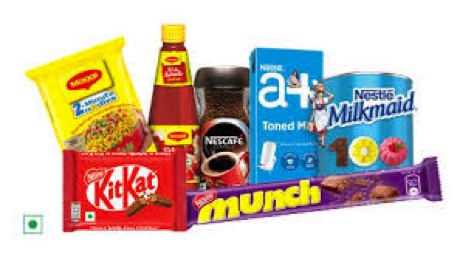India’s effort to wrap up bilateral trade deals with major economies after pulling out of a China-backed regional pact has hit a major stumbling block — its dairy industry.
Prime Minister Narendra Modi’s administration is hesitant to allow free access of dairy products from several countries, including the US, the EU and the UK, due to strong opposition from politically-influential dairy farmers, according to people familiar with the situation.
There are disagreements over a range of goods, but India feels more strongly about milk products on worries that their imports could destroy the livelihood of millions of farmers as most of whom are small and lack the economy of scale, said the people, who asked not to be identified as the matter isn’t public.
Trade negotiations are also being explored with Australia, while New Zealand has expressed its interest in a bilateral agreement, they said. The dairy industry is a major component of the proposed India-European Free Trade Association, which includes Iceland, Liechtenstein, Norway and Switzerland, they added.
Also read : Indo-US Limited trade deal may impact dairy farmers unlimitedly
An email sent to the trade ministry spokesman during the business hours for a comment on the issue remained unanswered.
Limited India US trade deal
The latest casualty of domestic opposition is a proposed ‘limited’ India-US trade deal, which is being negotiated since 2018 to resolve pending issues, the people said. The pact, which was almost firmed up, is stuck on the insistence of the US on more dairy concessions and India’s reluctance to do so due to the industry’s aversion, they said.
“We will never allow it,” said R.S. Sodhi, managing director of the Gujarat Cooperative Milk Marketing Federation, the nation’s biggest dairy cooperative that sells its products under the Amul brand. “We will oppose it tooth and nail,” he said by phone.
In about a decade, India will become a milk-surplus nation, Sodhi said. “Why do we need imports that will destroy the livelihood of 100 million people? It’s not just trade, it’s about their lives,” he said, referring to Indian farmers engaged in the dairy business.
Issues related to the domestic dairy sector were one of the major reasons last year for the Modi government to pull out of the Regional Comprehensive Economic Partnership talks. Powerful groups representing millions of farmers opposed any liberalization in the sector.
Thorny Issue
Tens of millions of people, mostly small and marginal landless farmers, are engaged in milk production in the South Asian nation. With the sector generating livelihood for a substantial rural population, opening up the market has become a thorny issue for the government already struggling with a contracting economy, surging coronavirus infections and unemployment levels that touched multi-decade highs.
The industry is also worried that it will have to follow stringent standards and sanitary and phytosanitary regulations to compete in domestic and global markets.
Also read : No concessions in dairy sector to the US under any trade treaty: R S Sodhi
Any trade deal with countries such as the US and Australia, which have become strategically important following India’s worst border standoff with China in four decades and reorienting supply chains amid the coronavirus pandemic, would impact India adversely, Sodhi said. Any such deal will kill the domestic industry and reduce dairy farmers’ income by half, he added.
The government’s trade policy is responding to domestic political considerations, which is not surprising but disappointing to potential trade partners, said Richard Rossow, senior adviser at Washington-based Center for Strategic International Studies. This reluctance to open the economy will persist until India’s trade balance improves, he said by email.
India’s largely unorganized dairy sector, with a significant presence of women labor, complicates the decision-making process for the government. The organized sector, comprising dairy cooperatives, private firms and government companies like Mother Dairy, account for just $30 billion of the $110 billion dairy industry in the country, Sodhi said. Farmers in the country earn about 67% of their total animal farming income from dairying.
Trade Deficit
“The issue is not about having domestic sensitivities, but allowing them to sabotage overall ambitions,” said Amitendu Palit, a senior research fellow at the National University of Singapore. India keeps walking out, while others continue engagement. This mindset needs to change, he added.
Also read : Indo-US FTA : What’s in it for Indian dairy farmers ?
“Foreign companies should bring in their expertise, skills and technology, but they must procure locally,” Sodhi said. “In the US, for instance , dairy farmers get subsidies and farms are large, with ample pastures for grazing. How will our farmers with two animals compete?” he said.
India’s apprehensions toward liberalization are also due to worries about the widening of its trade deficit. The Modi government has decided to review all past trade deals, with focus on ensuring mutual benefits and a win-win situation for all sides, trade minister Piyush Goyal said earlier.
But its cautious approach is not showing much success on reigning in the deficit, Rossow said. “Improved trade, even with potential trade deficits, provides economic ballast to a partnership. Trade ties can be narrowly focused to make potential agreements more palatable.”
Source : Business Standard



























